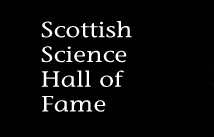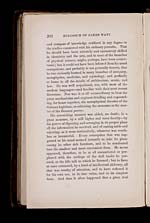James Watt (1736-1819)
Eulogium of James Watt
202
EULOGIUM OF JAMES WATT.
and compass of knowledge confined in any degree to
the studies connected with his ordinary pursuits. That
he should have been minutely and extensively skilled
in chemistry and the arts, and in most of the branches
of physical science, might, perhaps, have been conjec-
tured; but it could not have been inferred from his usual
occupations, and probably is not generally known, that
he was curiously learned in many branches of antiquity,
metaphysics, medicine, and etymology, and perfectly
at home in all the details of architecture, music, and
law. He was well acquainted, too, with most of the
modern languages—and familiar with their most recent
literature. Nor was it at all extraordinary to hear the
great mechanician and engineer detailing and expound-
ing, for hours together, the metaphysical theories of the
German logicians, or criticising the measures or the mat-
ter of the German poetry.
His astonishing memory was aided, no doubt, in a
great measure, by a still higher and rarer faculty—by
his power of digesting and arranging in its proper place
all the information he received, and of casting aside and
rejecting, as it were instinctively, whatever was worth-
less or immaterial. Every conception that was sug-
gested to his mind seemed instantly to take its place
among its other rich furniture, and to be condensed
into the smallest and most convenient form. He never
appeared, therefore, to be at all encumbered or per-
plexed with the verbiage of the dull books he per-
used, or the idle talk to which he listened; but to have
at once extracted, by a kind of intellectual alchemy, all
that was worthy of attention, and to have reduced it
for his own use, to its true value, and to its simplest
form. And thus it often happened that a great deal


